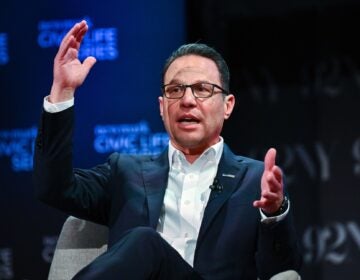Revolutions fall like snowflakes across the media landscape
ListenOne day a short while ago, my wife and I were watching a network TV drama, the Good Wife perhaps.
A commercial came on. “C’mon. What are you doing?” she said to me.
“What?” I said, all innocent.
“Why are we watching the commercials? Fast forward through.”
“Because, dear, I can’t. We’re watching live.”
She laughed out loud. “Goodness, when was the last time we did that?”
Neither of us could remember.
The revolution was televised. But we watched it the next day, on DVR.
In the wondrous age of Moore’s Law, miracles and revolutions cascade down upon us steadily, quietly, like fluffy snowflakes.
And we wake up one day to notice that the landscape has somehow been transformed.
Comcast tries to buy Time-Warner, but fails. Now Charter Communications wants to buy both Time-Warner and BrightHouse Networks in a deal unimaginably huge.
Why are the masters of finance scrambling to create even bigger media behemoths?
Netflix, the analysts say, Netflix.
Netflix, which didn’t exist 20 years ago, which just a few years ago mostly mailed you DVD’s in those little red packets, now seems call a lot of the shots in digital entertainment. The producer of House of Cards makes long-established cable giants look like, well, a house of cards.
Every one of us knows a cord-cutter, someone who has no cable or satellite dish, but still watches all the video entertainment they can handle via other means, from Netflix, Apple TV or Roku.
Sometimes I wonder whether anyone other that a few Silicon Valley venture capitalists can keep up with the pace of change.
A local example: Throughout the recent Philadelphia mayoral race, we journalists dutifully charted the fund-raising for and launching of political ads as though that were the key to the campaign.
But I kept asking myself: Who the heck watches campaign ads anymore?. I know I don’t. I don’t watch any ads except Geico’s. ‘cause they’re funny.
This seems to me to be one of the big stories to watch in the coming presidential extravaganza. A huge political apparatus, which is both dependent upon and lucrative for campaign consultants, still acts as though TV advertising drives election results.
I have a sneaking doubt that’s not going to be true anymore. Will any serious presidential candidate be bold enough to test that hypothesis? And if that person succeeded, what might that do to limit the malignant influence that big money has on our politics?
As we used to say in a vanishing age, stay tuned.
WHYY is your source for fact-based, in-depth journalism and information. As a nonprofit organization, we rely on financial support from readers like you. Please give today.




